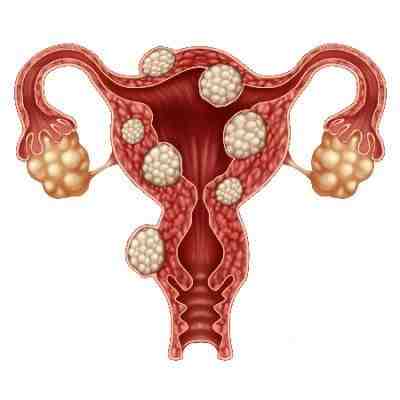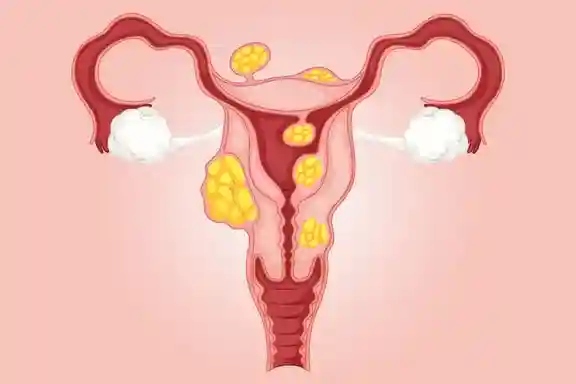
Fibroids and Fertility: Understanding the Roadblocks and Treatment Options
Are you dealing with uterine fibroids? Read this blog to get comprehensive insights into how uterine fibroids affect fertility and various treatment options for them.
Uterine Fibroids
Uterine fibroids are the common growths that develop in the uterus. They are also known as leiomyomas or myomas and can develop during a woman’s childbearing years. Fibroids are non-cancerous growths that rarely turn into cancer and are made up of muscle and connective tissues. However, it may affect various aspects of a woman’s reproductive health and overall well-being.

Causes and Symptoms of Uterine Fibroids
Symptoms to look for:
Many people with uterine fibroids usually do not show any symptoms. Some of the common symptoms of uterine fibroids include:
- Heavy menstrual bleeding
- Pelvic pain and pressure
- Frequent urination
- Abdominal bloating or enlargement
- Low back pain
- Fertility issues
- Constipation or difficulty emptying the bowels

What causes fibroids?
The reason behind the occurrence of uterine fibroids is still not clear, but there are certain factors that lead to the development of those growths. It includes hormonal changes, genetic predisposition, diet, and alcohol consumption.
What is the relationship between fibroids and infertility?
The link between fibroids and infertility may differ among women. Fibroids are benign growths that develop in the uterus. Most of the women with fibroids have normal fertility and pregnancy results. However, those benign tumours may interfere with fertility in some cases. Fibroids can affect fertility in many ways, depending on the size and location of the fibroids.
- Those non-cancerous growths can affect the structure of the uterus and interfere with the movement of the sperm or embryo.
- It can also affect the shape of the uterus, which makes it difficult for the fertilised egg to implant and grow.
- Fibroids, which are present near the fallopian tubes, can hinder the fertilisation process.
- The fibroids that develop within the uterine cavity or near the lining can interfere with embryo implantation, reducing the chances of pregnancy.
Fibroids can occur in various sizes, numbers, and locations within the uterus and affect every person differently.
It’s important to discuss your specific condition to get personalised treatment plans from your fertility specialist.
Treatment Options for Fibroids
Most of the fibroids do not need treatment until they are problematic. There are a number of ways to treat fibroids. Let’s discuss the treatment options for fibroids that prevent you from getting pregnant.
- Medications
Certain medications, such as hormonal therapy, may be prescribed by doctors to manage the symptoms associated with fibroids. These medications help regulate hormone levels and reduce symptoms such as heavy menstrual bleeding and pain associated with fibroids.

- Minimally invasive procedures
Some minimally invasive procedures, such as myomectomy and uterine artery embolization can treat fibroids causing fertility problems. These procedures either remove or shrink the fibroids while preserving the uterus. It includes fewer or minimal incisions as compared to traditional surgery.
In myomectomy, fibroids are removed through surgery to keep the uterus intact, whereas, in uterine artery embolisation, the blood supply is blocked to the fibroids, which shrink over time.
Seek professional guidance
If you are dealing with fertility problems because of uterine fibroids, then consult a healthcare professional, especially a fertility specialist. They can provide a personalised treatment plan based on your individual circumstances.